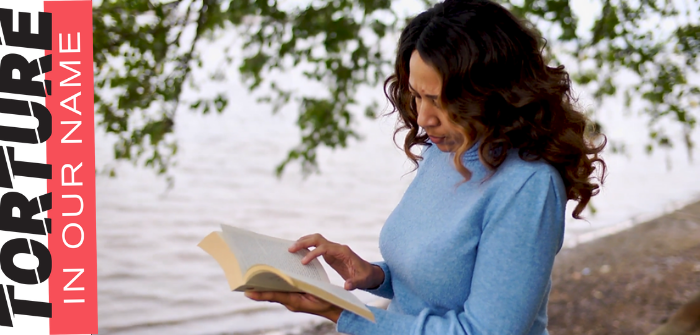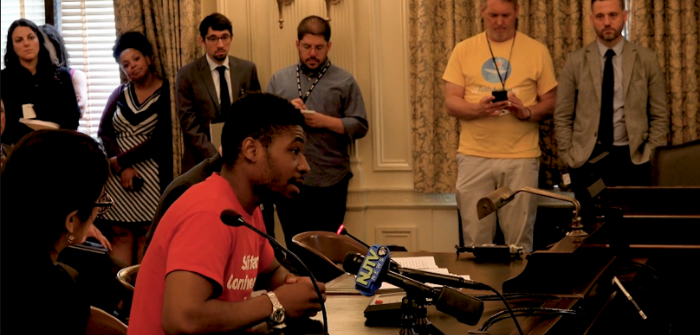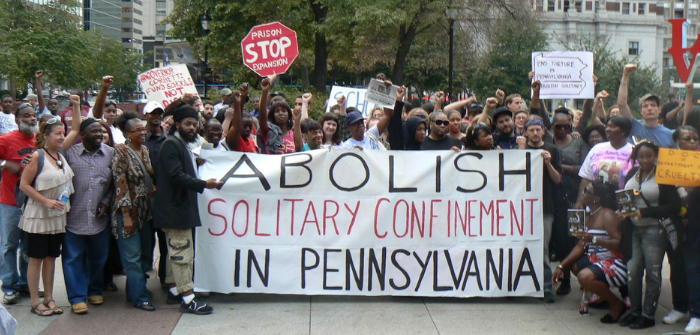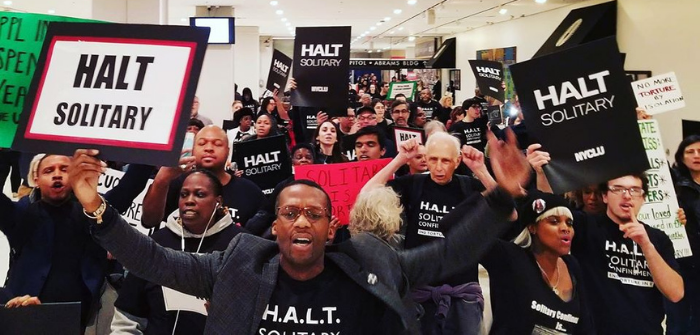Why are people sent to solitary? Contrary to popular belief that solitary confinement is only used in response to violent behavior, incarcerated people are far more likely to be placed in solitary for non-violent disciplinary reasons, because of a need for protection, or because corrections staff misinterpret their symptoms of mental disability as an act of defiance or rule breaking. (Here is a useful handout produced by the Vera Institute of Justice on this topic.)
If not solitary, what does NRCAT advocate for instead?
When a crisis arises inside a prison or jail, an intervention is needed. When that intervention requires separation, NRCAT advocates for humane alternatives to solitary confinement which include short-term separation that is accompanied by strict time limits for time-in-cell, rehabilitative and therapeutic programs, mental health and substance abuse treatment, individual and group therapy, and support by trained staff to address the underlying needs and causes of the behavior.
The New York State HALT Solitary Confinement Law offers a powerful example of the potential for alternatives. Passed in 2021, the law came into full effect in 2022. As a result, “keeplock,” one of the forms of solitary confinement where people were locked in their cells for up to 24 hours a day, has ended. NY has seen a more than 80% reduction in the use of SHU, from roughly 1,800 people in February 2022 just prior to implementation to roughly 300 people as of September 2023, with a limit of 15 days in solitary for all people. An all-solitary supermax prison, Southport C.F., with a long history of torture and brutality, has been shuttered. People who have spent years or decades in solitary confinement, have been moved into alternative units, the general population, and the community, without incident. Alternative forms of separation from the general population now involve incarcerated people having access to at least 7 hours of daily out-of-cell group programming and activities.
Access to sunlight, nature, and meaningful human contact are basic human needs that should not be denied to anyone, without exception.
The Norwegian Correctional System offers an alternative vision implemented by a number of state corrections systems in the U.S. including North Dakota, where solitary confinement was cut nearly in half by emphasizing the time, resources, and services that nurture human relationships which are considered essential to reducing the risk of conflict, disruption, and violence. NRCAT advocates for principles promoted by the Norwegian Correctional System (Labutta, 2016): “During incarceration people should gradually advance toward greater freedoms in their living circumstances, responsibilities, and environments as they progress from admission to reentry into society.”
While individuals must be held accountable for their actions, accountability needs to be grounded in an understanding of the root causes of behavior and how punitive policies may have contributed to such behavior. NRCAT advocates for a transformation in our society’s approach to justice, aiming to replace solitary confinement with meaningful opportunities for individuals to grasp the profound consequences of their actions, initiate the process of making amends to their victims, and embark on a journey towards personal growth and positive change. This transformation necessitates a comprehensive examination of the root causes of harmful behavior, such as addressing underlying issues like substance abuse, trauma, or mental health challenges. Rather than exacerbating these problems through the isolation of prolonged solitary confinement, NRCAT advocates fostering an environment of healing and rehabilitation which will ultimately lead to a more just and compassionate society.
In solitary for more than 15 days? That's torture. Extended solitary confinement is globally recognized as torture. The former United Nations Special Rapporteur on Torture, Professor Juan Méndez (2010-2016), stated in a 2011 report that solitary confinement in excess of 15 days should “be subject to an absolute prohibition” based on scientific evidence of its psychological damage, noting that some of the psychological effects caused by isolation become irreversible after 15 days. Further, the United Nations’ “Nelson Mandela Rules” prohibit the use of solitary confinement beyond 15 consecutive days in all circumstances and call for its abolition for women, children and individuals with mental and physical disabilities. Article I of the UN Convention Against Torture prohibits policies and practices that “constitute cruel, inhuman or degrading punishment.”








